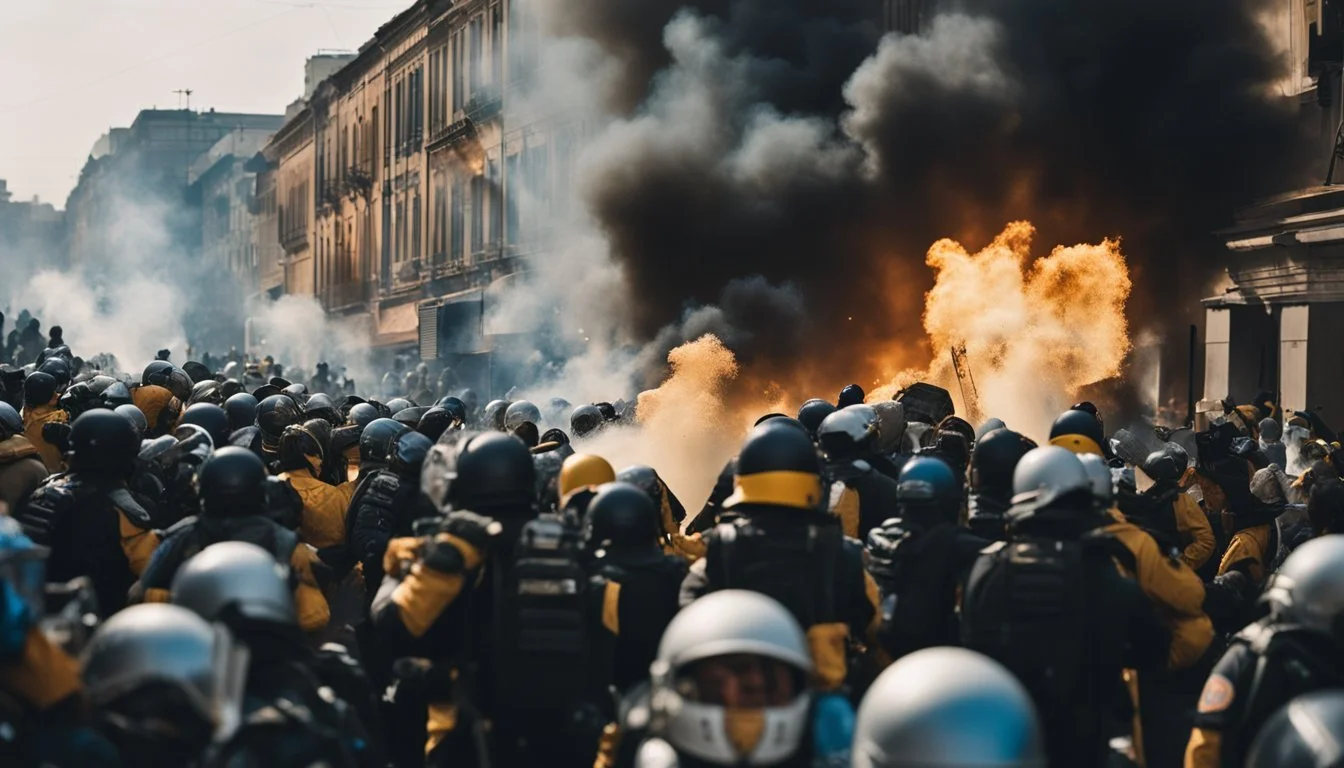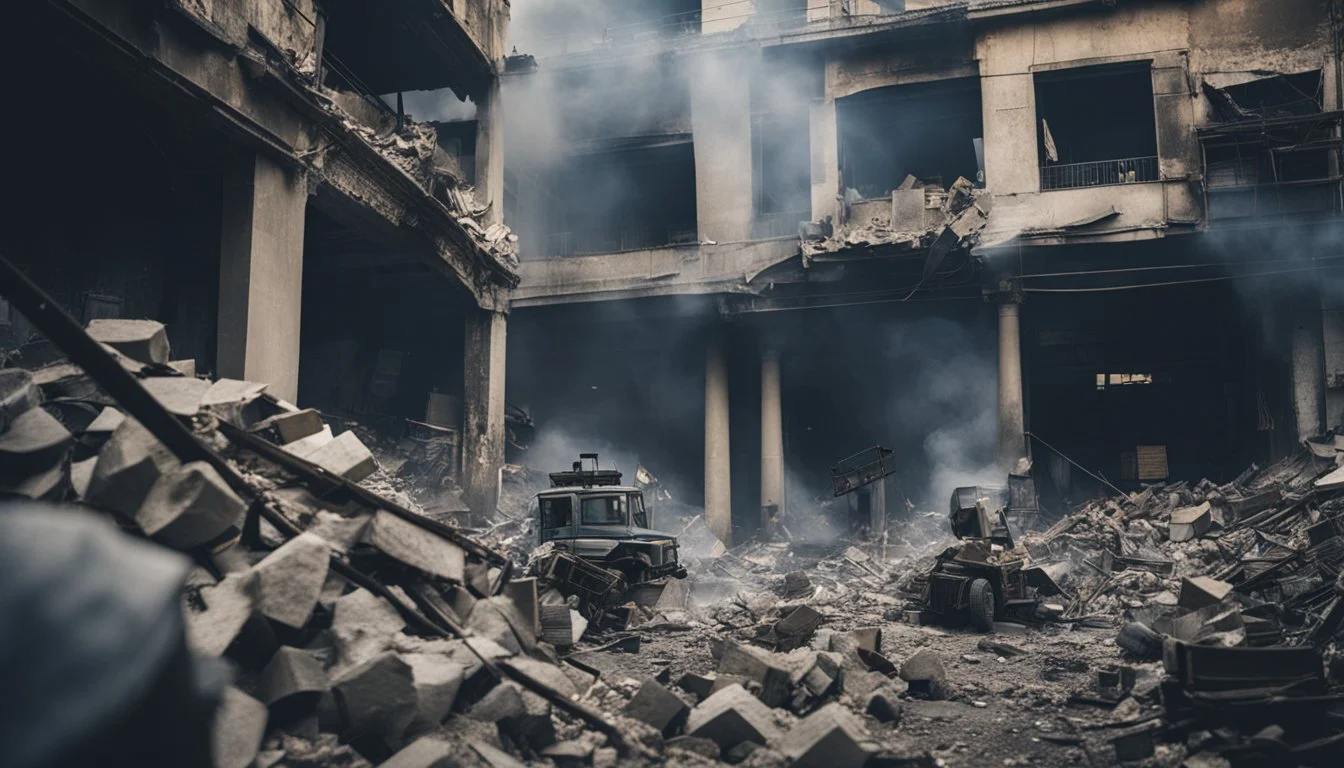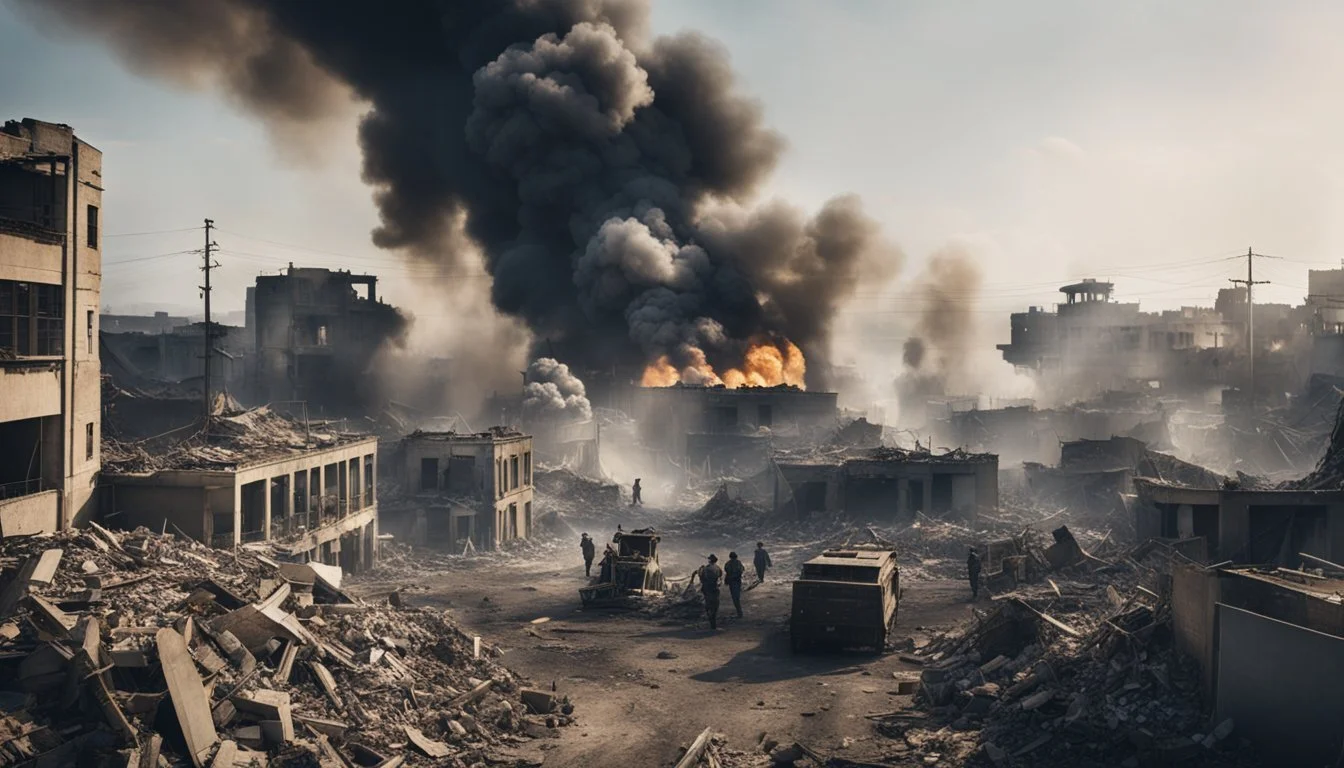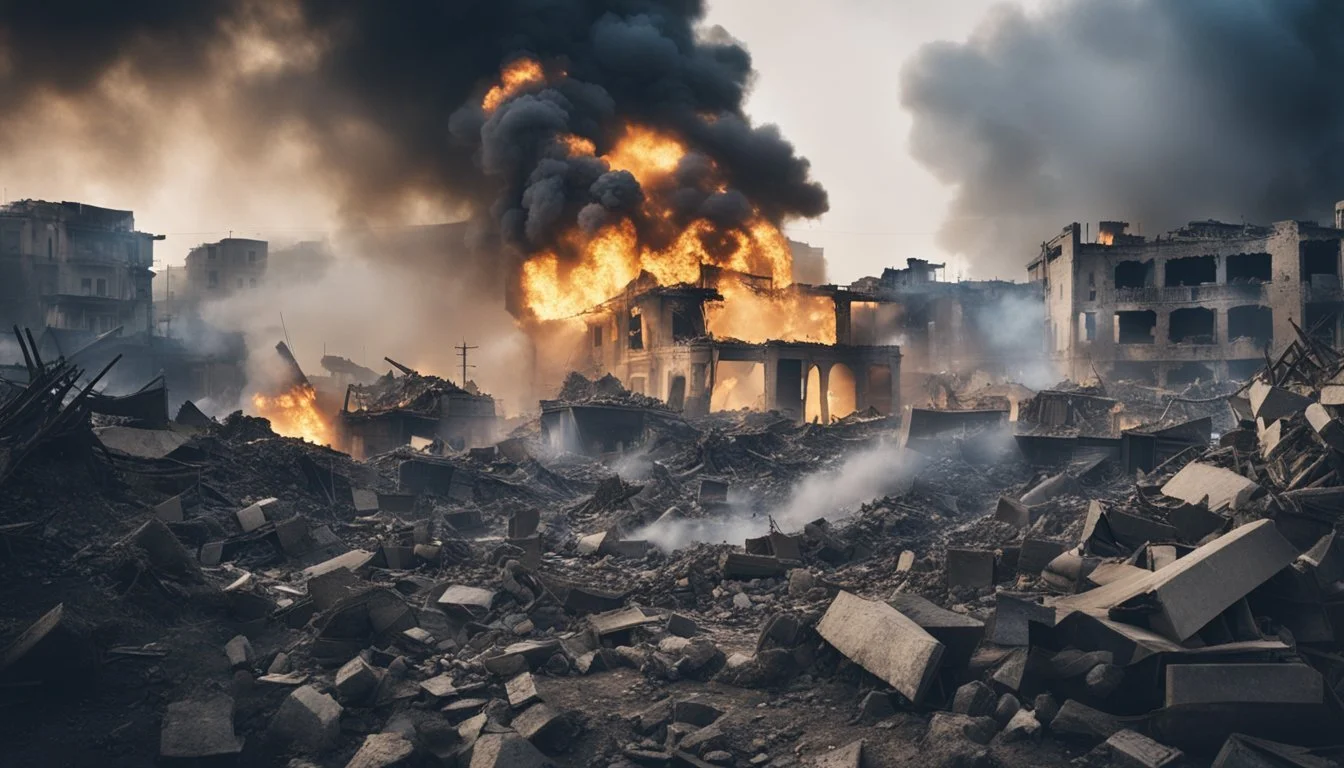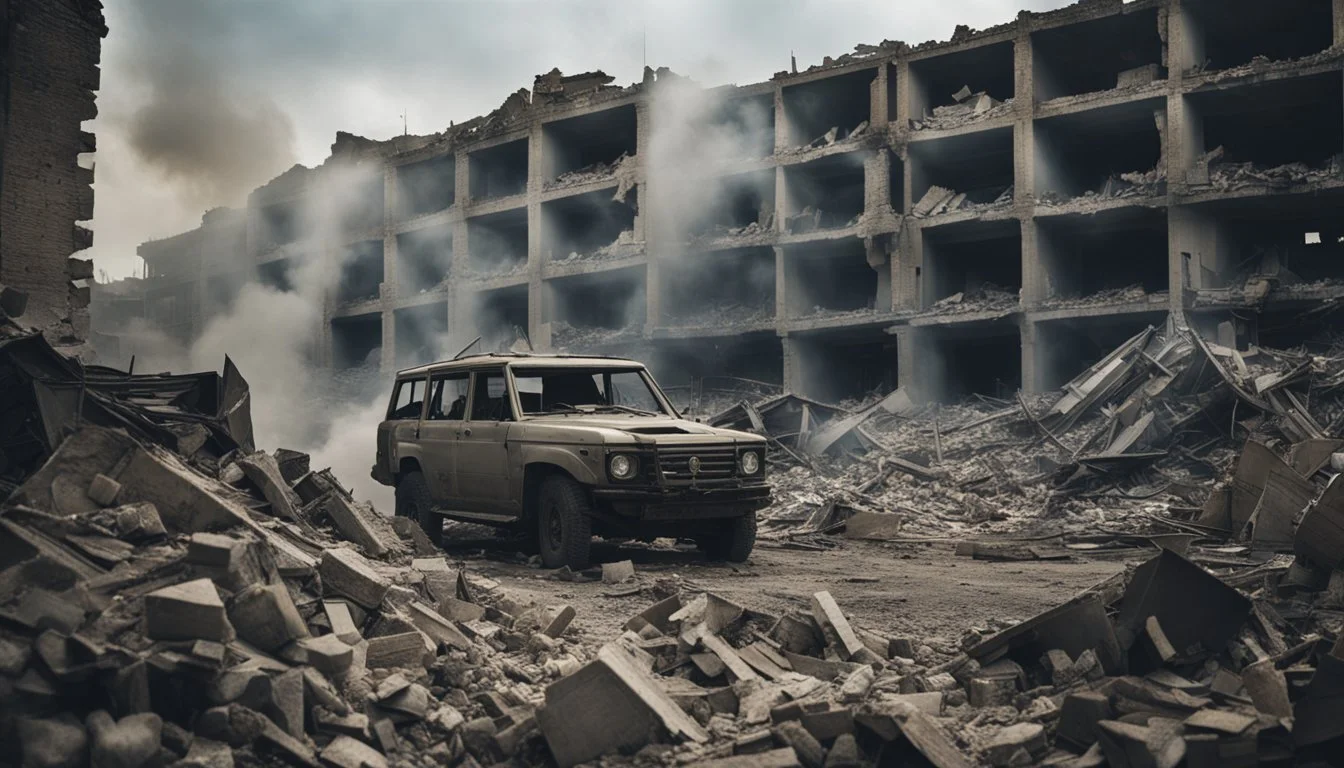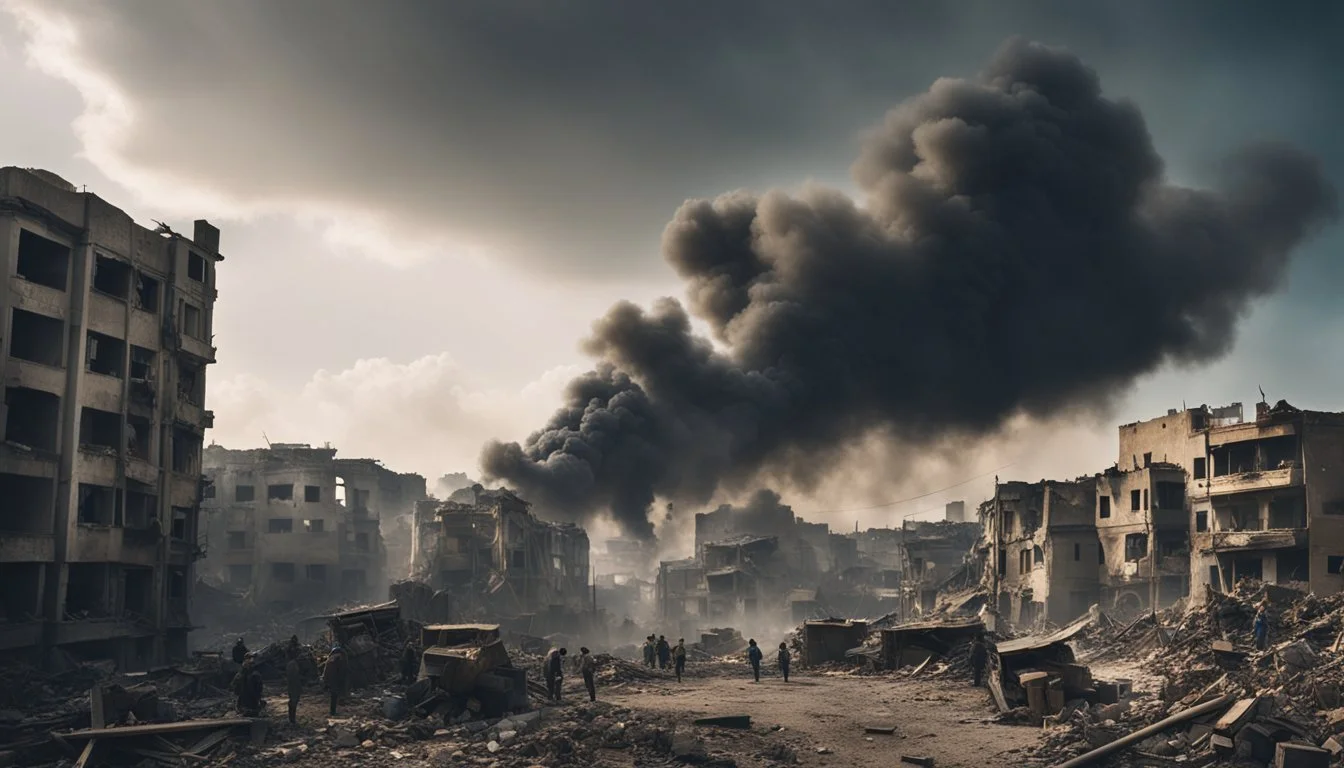Matthew Heineman: Immersing Viewers in the Heart of Conflict Through Gritty Documentaries
Matthew Heineman stands out as one of the most daring documentary filmmakers of our time. Through his fearless lens, he has brought audiences face-to-face with some of the world's most perilous conflicts. From the brutal landscapes of the Mexican drug war in "Cartel Land" to the chaotic streets of Syria in "City of Ghosts," Heineman immerses viewers in the heart of humanitarian crises, capturing raw human emotion and resilience.
In his latest work, "Retrograde," Heineman focuses on the final months of the U.S. war in Afghanistan. Heineman's commitment to portraying the intimate realities of conflict zones remains ever-present. Unlike many filmmakers who maintain their distance, Heineman gets as close as possible to his subjects, engendering a profound empathetic connection between the audience and the people on screen. This approach allows viewers to witness the complexities and human stories that transcend mere political and military narratives.
Heineman's knack for storytelling and his unflinching dedication to capturing the truth make his documentaries not just films, but essential viewing experiences. He continues to challenge and reshape our perceptions of war, conflict, and humanity, making him an indispensable figure in contemporary documentary filmmaking.
Matthew Heineman: A Brief Biography
Matthew Heineman, born on November 30, 1983, is an acclaimed American documentary filmmaker, director, and producer.
Heineman has made significant contributions to the documentary film industry with his unique storytelling approach. His interest in American history influenced his early works, including the critically lauded documentary film Cartel Land.
Cartel Land earned Heineman multiple accolades. It was nominated for the Academy Award for Best Documentary Feature Film, a BAFTA Award for Best Documentary, and won three Primetime Emmy Awards.
Heineman's portfolio includes the gripping film A Private War, which further cemented his reputation in the industry. He has also been recognized by the Directors Guild of America (DGA), securing two DGA Awards for his impressive work.
Another notable project is The First Wave, documenting the harrowing early stages of the COVID-19 pandemic in New York City. This film highlights his commitment to real-time, impactful storytelling.
His career is decorated with numerous awards and commendations, reflecting his talent and dedication to his craft.
Documentary Filmmaking Philosophy
Matthew Heineman's approach to documentary filmmaking is driven by an intense commitment to vérité style. Heineman prioritizes capturing real-life events as they unfold, aiming for authenticity and immediacy.
Heineman’s dedication to this style is seen in his minimal use of talking heads or voiceovers. He prefers to let the events and subjects speak for themselves, allowing the audience to draw their own conclusions.
Immersing himself and his crew in the environments they film is crucial. Be it the Mexican drug war in Cartel Land or COVID-19's early days in The First Wave, Heineman's presence is felt on the front lines.
This immersion helps to portray the full spectrum of human emotion and nuance, creating a raw and visceral connection between the documentary's subjects and its audience. He uses this method to reveal the human stories behind major conflicts and societal issues.
Heineman’s attention to detail and narrative structure is evident in his works. By framing real events with cinematic techniques, he crafts compelling stories that are both informative and engaging. His films offer a balanced portrayal, avoiding sensationalism while highlighting real struggles and triumphs.
In projects such as The Trade, Heineman’s focus on interconnected human experiences across borders underscores his belief in the power of storytelling to foster understanding and empathy.
By maintaining an unbiased lens and a relentless pursuit of truth, Heineman exemplifies a philosophy that values integrity, humanity, and engagement at the core of documentary filmmaking.
Notable Works and Accolades
Matthew Heineman is widely respected for his ability to bring the raw emotions and stark realities of conflict zones to the screen. His notable works have garnered critical acclaim and numerous awards, solidifying his reputation in documentary filmmaking.
Cartel Land
Cartel Land is one of Heineman's most recognized works. Released in 2015, it delves into the Mexican drug war. The film, praised for its intense and gripping cinematography, immerses viewers in the violent world of drug cartels. The documentary was nominated for an Academy Award for Best Documentary Feature and won three Primetime Emmy Awards, highlighting Heineman's exceptional storytelling and impactful direction.
City of Ghosts
In City of Ghosts (2017), Heineman focuses on the Syrian citizen journalist group Raqqa Is Being Slaughtered Silently. The film provides a harrowing look at their fight against ISIS. Critics lauded the film for its courage and visceral footage. It won the Courage Under Fire Award from the International Documentary Association and further cemented Heineman's place as a master of immersive, conflict-driven narratives.
A Private War
Heineman's A Private War (2018) marked a shift from documentary to feature filmmaking. The movie depicts the life of war correspondent Marie Colvin. It received critical acclaim for its powerful portrayal of Colvin's relentless pursuit of truth in war-torn regions. Rosamund Pike’s performance as Colvin earned a Golden Globe nomination, showcasing Heineman's ability to transition seamlessly between documentary and feature film formats.
The Boy from Medellín
The Boy from Medellín (2020) offers a more personal story, following Colombian reggaeton singer J Balvin as he prepares for a major concert in his hometown. While it strays from Heineman's typical conflict zone settings, the film still captures the tension and socio-political issues faced by the artist. The documentary was praised for its candid approach and deep dive into the artist's personal and professional challenges, underscoring Heineman's versatility in storytelling.
Techniques for Capturing Authenticity
Matthew Heineman employs a variety of techniques to ensure his documentaries feel genuine and immersive. His approach focuses on capturing the raw essence of the environments and people he films.
Handheld Camera Work
Heineman often uses handheld cameras to create a more intimate connection between the viewer and the subject. This technique brings an "on-the-ground" perspective, making the audience feel like they are part of the unfolding events.
Direct Engagement
Heineman immerses himself in the environments he documents. This direct engagement allows him to capture spontaneous and unrehearsed moments, adding a layer of authenticity to his films.
Access to Exclusive Locations
Gaining access to areas that are typically off-limits helps Heineman present a unique vantage point. Whether in conflict zones or behind the scenes in critical moments, this access lends credibility and depth to his narratives.
Human-Centered Focus
By focusing on individual stories and human experiences, Heineman connects viewers to broader societal issues. Personal stories make complex topics relatable and compelling.
Real-Time Filming
Heineman often films events as they happen, which reduces the possibility of staged scenarios. This real-time approach ensures that the reactions and emotions captured are genuine.
Collaboration with Subjects
Collaborating closely with the people he documents, Heineman gains their trust and presents their stories with respect and authenticity. This mutual trust enriches the storytelling process.
These techniques, combined with Heineman's keen eye for detail, enable him to create documentaries that are both informative and deeply moving.
Challenges in Conflict Zones
Matthew Heineman’s documentaries vividly portray the profound challenges faced in conflict zones.
In "City of Ghosts," Heineman highlights the daily hurdles civilians encounter. Children, families, and communities are subject to violence, displacement, and the constant threat of death. These environments test human resilience and spirit.
Logistical Issues: Filmmakers like Heineman grapple with securing safe access to dangerous areas. Ensuring the crew’s safety while capturing authentic footage requires meticulous planning and constant vigilance.
Ethical Dilemmas: Documenting sensitive subjects without exploiting their suffering poses ethical challenges. Heineman meticulously balances the stories' integrity with the need to raise global awareness.
Mental and Emotional Toll: Constant exposure to violence and human suffering takes a substantial toll on journalists and filmmakers. It affects their mental and emotional well-being, making psychological support crucial.
Technological Hurdles: Limited access to technology and communication tools in war-torn regions can impede the documentation process. Adapting to these constraints is essential for effective storytelling.
These challenges underscore the complexity and risks involved in creating impactful documentaries about conflict zones.
The Role of Documentary in Society
Documentaries play a vital role in society by educating the public, influencing policy, and humanizing subjects affected by various issues. They can be powerful tools for generating awareness and fostering empathy.
Educating the Public
Documentaries serve as informative resources. They cover topics that might be overlooked or misunderstood. Through visuals, interviews, and factual reporting, they break down complex subjects, making them accessible.
For example, Matthew Heineman's "Cartel Land" offers an in-depth look at the narcotics conflict, shedding light on the violence and struggles faced by communities. This form of education helps viewers develop a nuanced understanding of significant issues.
Influencing Policy
Documentaries can impact policy decisions. By exposing problems and sparking public discourse, they place pressure on policymakers to take action. Real-life stories and documented evidence can make abstract issues more tangible.
In the case of healthcare or immigration documentaries, policymakers might be moved to address the highlighted disparities and injustices. This influence underscores the importance of documentary filmmaking as a vehicle for change.
Humanizing Subjects
Humanizing the subjects of documentaries is essential in bridging the empathy gap. By focusing on personal stories, filmmakers like Heineman reveal the human side of conflicts and crises. This approach fosters a deeper connection between viewers and the individuals affected.
For instance, Heineman's work in "A Private War" portrays the emotional and psychological toll of war on journalist Marie Colvin. Such narratives help viewers understand and empathize with people who live through these harrowing experiences.
Documentaries, through a mix of visual storytelling and factual reporting, effectively educate, influence policy, and humanize complex issues. Their role in society is significant, providing insights and fostering connections across diverse audiences.
Ethical Considerations in Documentary Filmmaking
Ethical considerations are paramount in documentary filmmaking, influencing decisions from conception to final cut. Filmmakers often navigate complex ethical landscapes while aiming to present truth and authenticity.
One major ethical concern is informed consent. Subjects must understand the implications of their participation and provide clear, voluntary consent.
Managing subject vulnerability is also critical. Documenting individuals in crisis raises concerns about exploitation and harm. Filmmakers need to balance storytelling with the responsibility of protecting their subjects' dignity.
Transparency with subjects and audiences about the filmmaking process fosters trust and accountability. This includes clear communication about the documentary's purpose and possible repercussions.
Key ethical considerations:
Respect for privacy: Ensuring subjects' private lives are not unduly exposed.
Accuracy: Striving to present factual information without distortion.
Non-exploitation: Avoiding manipulation or taking advantage of subjects' situations.
Balanced representation: Portraying subjects and events fairly, without bias.
Using ethical guidelines, such as those discussed in studies and interviews with filmmakers, helps navigate these challenges. Documentaries like This Is Congo highlight the harsh realities faced by millions while maintaining ethical rigor.
Ethical documentary filmmaking is a dynamic process, requiring constant reflection and adjustment. By adhering to these principles, filmmakers like Matthew Heineman ensure their work not only informs but also respects the humanity of those it portrays.
Audience Reception and Impact
Matthew Heineman's documentaries have consistently struck a chord with audiences. His ability to bring stories from conflict zones reaffirms his reputation as a dedicated filmmaker.
"Cartel Land" (2015) received high praise for its gripping depiction of the Mexican drug wars. Viewers appreciated its raw, unfiltered access to dangerous environments, adding authenticity to the narrative.
His work is often described as emotionally impactful. The choice to place viewers amid the action fosters a deeper connection to the subjects.
"Retrograde" showcased his knack for making viewers feel the immediacy of the events. The personalized portrayal of those in conflict zones helped audiences gain a nuanced perspective.
Heineman's shift in "American Symphony" to focus on musician Jon Batiste and his wife Suleika Jaouad, dealing with a medical crisis, demonstrated his range. This pivot did not go unnoticed, as audiences admired the intimate storytelling.
Reviews and Awards
"Cartel Land": Praised for its compelling storytelling and won the Sundance Directing Award.
"Retrograde": Lauded for its immediacy and depth, receiving strong critical acclaim.
"American Symphony": Highlighted for its heartfelt narrative, resonating deeply with viewers.
Tables and Lists:
Film Reception Cartel Land High praise, Sundance win Retrograde Strong critical acclaim American Symphony Resonated with audiences
Positive Reception:
Cartel Land: Authentic and raw
Retrograde: Deep and immediate portrayal
American Symphony: Intimate and heartfelt
Heineman's work continues to engage audiences, highlighting his skill in tackling both conflict and personal narratives with equal vigor.
Collaborations and Influences
Matthew Heineman has built a remarkable career shaped by significant collaborations and influences. Notable collaborators include his work with musician Jon Batiste and his wife Suleika Jaouad, documented in American Symphony.
Influences come from his immersion in conflict zones, informing his authentic approach. Directors like Werner Herzog and Martin Scorsese, known for their intense visual storytelling, have left a mark on his style.
Working with influential producers such as Alex Gibney has also impacted Heineman's methods. His collaboration with these industry veterans has sharpened his ability to bring raw, human narratives to the forefront.
Heineman's documentaries often resonate with the works of acclaimed filmmakers who focus on real-world issues. This is evident in films like Retrograde and Cartel Land, where his perspective aligns with those who seek to highlight underreported stories.
Future Projects and Direction
Matthew Heineman continues to chart new paths in documentary filmmaking, drawing from his profound experiences in crisis zones. Given his work on "The First Wave," Heineman likely aims to shed light on other underreported global crises.
Heineman's future projects may explore topics that intersect health, conflict, and social justice. He remains committed to presenting human stories with empathy and precision.
Speculation about Topics:
Global Health: Tackling epidemics or neglected diseases.
Conflict Zones: Exploring regions entrenched in ongoing conflict.
Social Justice: Stories of marginalized communities fighting for rights.
Potential Collaborations:
Non-governmental Organizations (NGOs)
Human Rights Groups
Heineman's dedication to immersive, real-time storytelling suggests his future works will maintain an on-the-ground perspective, providing viewers with an unfiltered view of pressing issues.

